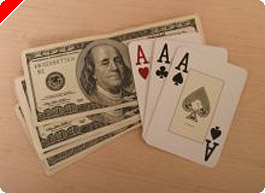The info I have is you gotta pay 28% if you have a valid SSN and 31% if you do not on your gambling winnings and you can deduct all your losses as long as they do not exceed your winning.
Does the same % apply to someone who does this full time and their only source of income?
thanks
sp
Does the same % apply to someone who does this full time and their only source of income?
thanks
sp



